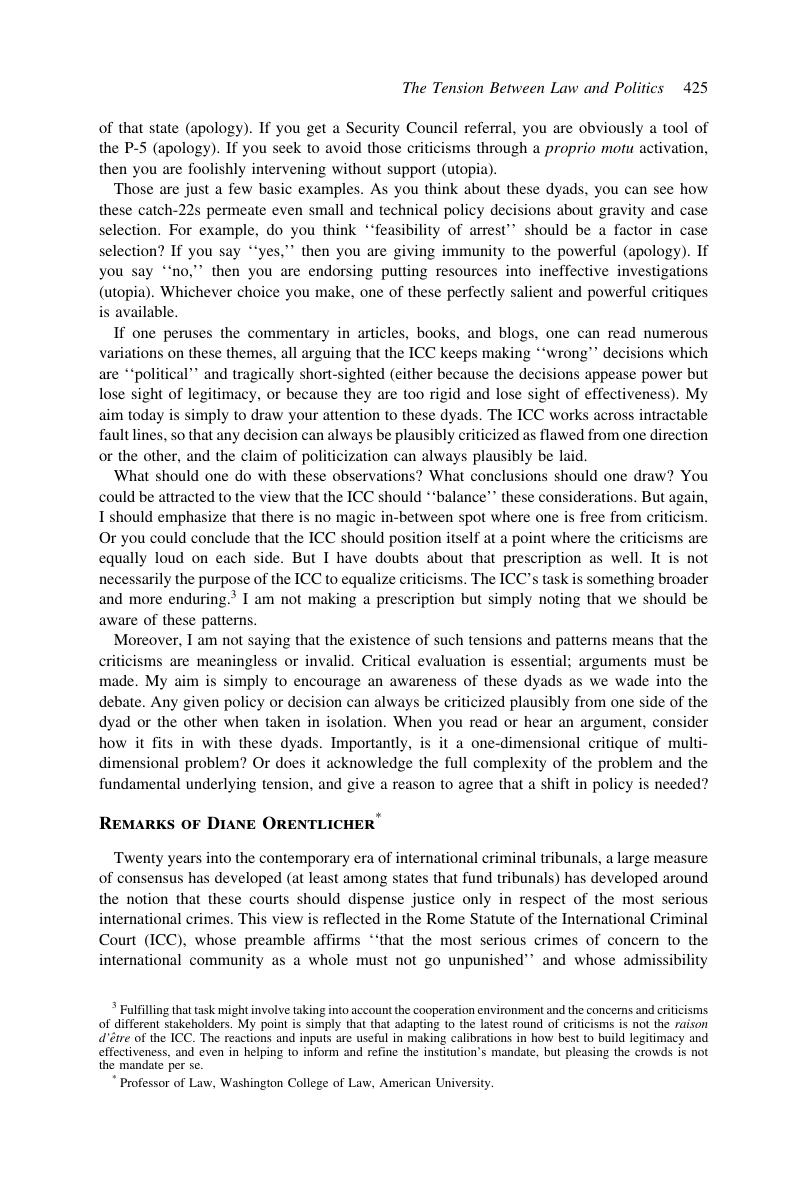Published online by Cambridge University Press: 20 January 2017

1 Rome Statute of the International Criminal Court art. 17(l)(d), U.N. Doc. A/CONF. 183/9, as corrected by the procés-verbaux of 10 November 1998 and 12 July 1999, 37 ILM 1002 (1998), 2187 U.N.T.S. 90.
2 ICC Prosecutor Fatou Bensouda may have had this kind of consideration in mind when she indicated soon after taking office that she would emphasize crimes of sexual violence and violence against children.
3 Here, it is more precise to say “applied as consistently as possible,” as every situation potentially warranting ICC engagement is uniquely horrible.
4 The criteria for determining gravity identified in the ICC’s jurisprudence are not as rigid as my argument may at times imply. Nonetheless, maintaining the same criteria for each potential situation serves an important function, even if it is one that seems largely rhetorical: it enables the Court to answer the charge of political selectivity with legally defined criteria.